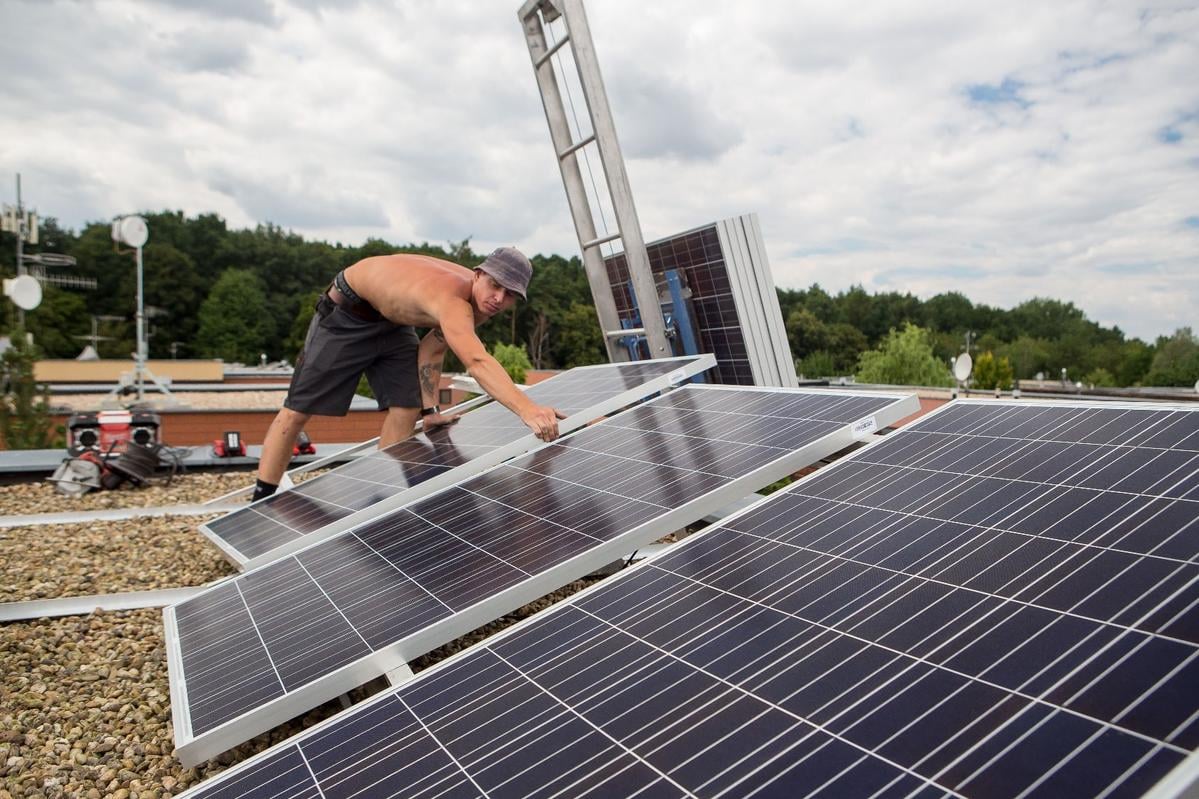Dump load facilities in Slovakia may soon be used to convert excess solar energy into heat and release it into the air. A project to implement such a facility is currently in the pipeline in central Slovakia. Similar facilities have already been operational in the Czech Republic, as reported by the Hospodárske Noviny daily.
However, energy experts do not consider this solution optimal. They argue that before constructing new electricity-generating facilities, a thorough analysis of electricity consumption is necessary. Currently, energy consumption in Slovakia is decreasing.
“We made a significant mistake, not only in Slovakia but across Europe, by building new facilities without a clear understanding of who would consume the electricity produced,” energy expert Andrej Hanzel told Hospodárske Noviny. He emphasized the need to rethink the construction of renewable energy facilities. “Now we have a surplus of electricity, particularly around lunchtime when consumption is low,” he added.
Too much solar energy
Since 2022, electricity distributors in Slovakia have reported a surge in rooftop solar panel installations on residential and commercial buildings. This trend has been driven by the war in Ukraine and rising energy costs.
While solar panels provide affordable green electricity, they generate excess power, especially in the summer at midday. As a result, the rapid growth of solar energy has led to paradoxical situations: extreme supply and insufficient demand have driven electricity prices into negative territory.
In the Czech Republic, energy companies have addressed this issue by integrating dump load facilities into the grid. These facilities convert excess solar energy into heat, which is then released into the air free of charge. In the future, facilities with a combined capacity of around 1,000 megawatts - equivalent to the Temelín nuclear power plant—could be connected to the local grid, the Czech iRozhlas website informed.
In Slovakia, Stredoslovenská Distribučná, the power distribution company operating in central Slovakia, plans to build a similar facility near Martin.
What are dump loads?
A dump load is a facility that absorbs excess electricity from the grid and converts it into heat to maintain system balance. Experts compare it to a hairdryer in terms of technology, as it uses a heating coil powered by electricity. The resulting heat is typically released into the air.
Stredoslovenská Distribučná is awaiting approval for its project, describing it as the first wave of such initiatives in Slovakia.
The other two electricity distribution companies in Slovakia have no plans for similar facilities. Instead, they limit the number of electricity-generating facilities connected to the distribution system to avoid exceeding capacity. Západoslovenská Distribučná even considers dump load facilities an ecological waste of renewable electricity, according to its spokesperson Michaela Dobošová.
Alternatives to dump load facilities
An alternative to dump load facilities is battery storage systems. However, in the Czech Republic, current legislation does not permit the connection of standalone battery storage facilities to the grid, and the relevant regulations are still awaiting approval. As a result, it is not yet possible to store excess megawatt-hours for later use, leading investors to seek solutions like dump loads.
In Slovakia, batteries with a capacity of more than 20 megawatts were connected to the grid last year. Electricity distribution companies recommend storing excess electricity and advise households against installing solar panels that produce significantly more energy than they consume.
“Oversized solar systems generate unnecessary costs for their owners, who must manage the surplus energy. At the same time, they create a financial burden for all users of the transmission and distribution system,” Andrea Forberger, spokesperson for Východoslovenská Distribučná, told Hospodárske Noviny.



 Energy distribution companies recomend not to install oversized solar systems. (source: ČEZ)
Energy distribution companies recomend not to install oversized solar systems. (source: ČEZ)